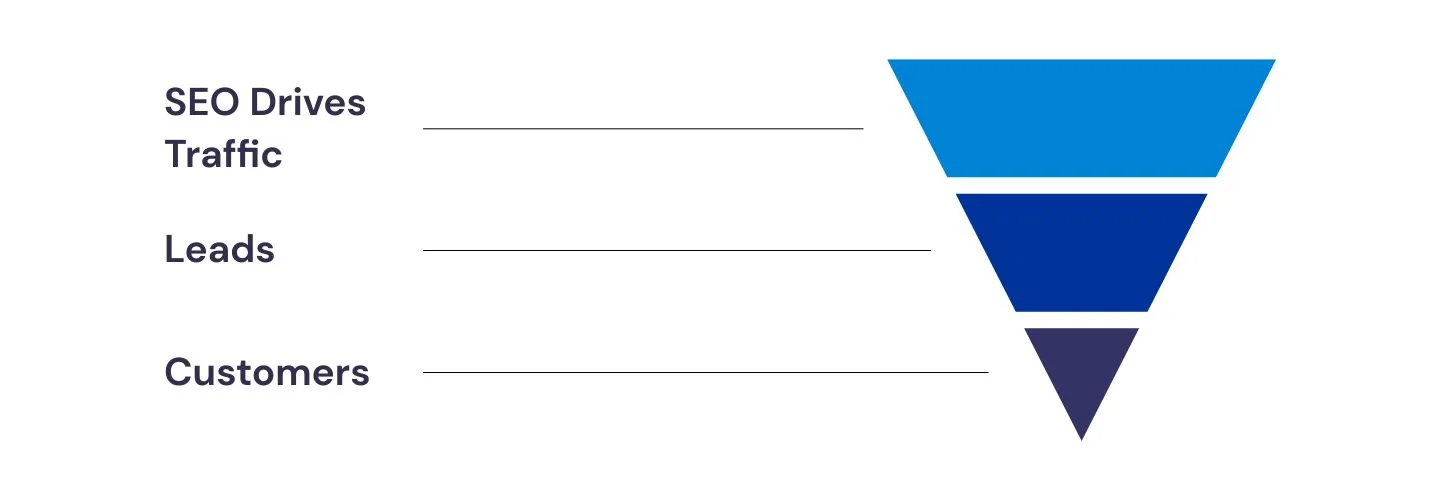Do Businesses Still Need SEO in the Era of LLMs? Is It Worth Investing In?


If you’re running a business today, you’ve probably heard about AI tools like ChatGPT and wondered, “With AI answering questions and creating content, is SEO still necessary? Should I keep investing in it?” It’s a fair question, especially if you’re not deep into digital marketing jargon and just want what moves your business forward.
In this blog, here’s what you’ll learn-
How This New AI (LLMs) Could Change the Way Customers Find You
- Common Questions About SEO’s Role Alongside LLMs
- Understanding SEO and Its Traditional Benefits
- What SEO Has Done for Businesses Until Now
- How SEO Gets You Found (By People Who Want What You Offer)
- How LLMs Are Changing the Digital Landscape
- More Impressions, Fewer Clicks? Here’s Why
- How SEO Gets You into AI Overviews
- Why SEO Still Matters Even with LLMs
- New SEO Strategies in the Age of LLMs
- When and How to Invest in SEO Today
Let’s dive in!
How This New AI (LLMs) Could Change the Way Customers Find You

Large Language Models (LLMs) are a type of artificial intelligence that can understand and create human-like text. Think of them as very smart robots trained by reading millions of books, articles, and websites. That’s why tools like ChatGPT can answer your questions, write articles, or even chat like a person.
These tools are shifting search behavior from “click and explore” to “ask and get answers instantly.”
Instead of clicking through multiple websites, many now get instant answers directly from AI chatbots or assistants.
Why should you care? These changes affect how potential customers find your business online.
Common Questions About SEO’s Role Alongside LLMs
Here’s what we hear most often:
- If AI can create content instantly, do I still need to optimize my website?
- Will search engines stop relying on traditional SEO signals?
- How can I make sure my business stays visible when people ask AI assistants instead of searching Google?
Good news: SEO and AI aren’t enemies; they can work together. We’ll explain how.
Understanding SEO and Its Traditional Benefits

SEO has been a cornerstone of online marketing for over two decades. Yes, we’ve been in the game that long, and we’ve seen it all! When done right, it helps your business show up when people search for what you offer.
In our 20 years working with businesses, we’ve seen SEO do three main things:
- Improve visibility: Helping your website appear in search results when people look for your products or services
- Attract the right customers: Bring visitors who are actively interested and ready to buy
- Build trust and authority: Consistent ranking and useful content make your business look reliable
In short, SEO has been a key driver of organic traffic that turns into real customers.
What SEO Has Done for Businesses Until Now

Think of SEO as your business’s friendly guide to the internet. Over the years, it’s helped:
- Small local shops get discovered by neighbors searching online
- Service providers book more clients by ranking for helpful “how-to” searches
- Larger companies build brands and dominate competitive markets
And it’s evolved alongside search engines, adapting to mobile phones, voice search, and now AI-powered results.
How SEO Gets You Found (By People Who Want What You Offer)

Search engines act like matchmakers between user intent and the best answers on the web. SEO makes sure your website speaks the same language as search engines, using:
- Optimized content
- Technical structure
- User experience
The better optimized your site, the higher the chance it ranks for relevant searches, driving organic traffic that converts, without paying per click.
How LLMs Are Changing the Digital Landscape
Now, enter the AI assistants powered by LLMs. They can:
- Write blog posts, social media captions, or product descriptions quickly
- Provide instant, conversational answers on websites via chatbots
- Influence how search engines display results, sometimes giving direct answers instead of lists of links
Search engines like Google are also adding AI features to improve the search experience, such as AI Overviews (previously called SGE – Search Generative Experience). These AI-generated summaries often show up at the top of search results, giving users quick, concise answers without needing to click.
To understand how to work with these changes, you might find our post on How to leverage LLMs.txt for your website SEO useful, as it explains how to help AI better index your site content.
More Impressions, Fewer Clicks? Here’s Why
If you’ve noticed your website is getting more impressions but fewer clicks, this could be why.
AI Overviews often pull information directly from websites like yours and display it inside the search results. So even if your brand shows up, users might get what they need from the AI summary, without ever visiting your site.
Even if clicks are down, you’re not out of the game; SEO can get you featured in those summaries.
How SEO Gets You into AI Overviews
Here’s what works:
- Write structured, helpful content that answers common customer questions
- Use semantic SEO; cover topics comprehensively using natural, topic-related language
- Add schema markup (a small bit of code) so search engines can better “read” and interpret your content
- Publish informative, trustworthy content that demonstrates depth and authority
We’re already helping clients do this, and the results speak for themselves.
And yes, you can track how AI Overviews are interacting with your content. You’re not flying blind. Take a look at our step-by-step guide: How to Track Traffic from AI Overviews, Featured Snippets, or People Also Ask Results in Google Analytics 4.
Why SEO Still Matters Even with LLMs

You might wonder: If AI is doing so much, why bother with SEO? Here’s why:
- Search engines still need well-organized, clear websites to index and rank properly. SEO helps with this behind the scenes.
- Technical SEO (like site speed and mobile usability) improves how people experience your site, which matters a lot.
- SEO drives organic traffic—people actively searching to buy or learn about your business. AI answers often point back to your site or use your content.
In short, good SEO builds the foundation that both Google and AI rely on to recommend your site.
If you want a deeper look at how SEO helps your business grow long-term, check out How does SEO (or content marketing) help my business grow in the long run?
New SEO Strategies in the Age of LLMs
To keep up, your SEO approach needs to include:
- Answering real customer questions: Write content that directly solves problems or answers the “how” and “why” questions your customers have.
- Optimizing for voice and AI search: People speak differently than they type, so include natural, conversational language.
- Focusing on quality and trust: Make sure your content is accurate, helpful, and trustworthy, because AI loves reliable sources.
Remember, AI can help you brainstorm or draft, but your genuine knowledge and connection with customers will always matter most.
When and How to Invest in SEO Today
Wondering if it’s time to invest in SEO? Consider this:
- Your website isn’t ranking for key terms
- You’re losing traffic or not growing as fast as you want
- You want to lower your dependency on paid ads
- You’re introducing new products or reaching out to a fresh audience
Balancing SEO efforts with AI tools means working smarter, not harder. And partnering with experts who understand both worlds can save you time and headaches.
Combining SEO with AI Tools Is the Smartest Way to Future-Proof Your Online Presence
SEO isn’t disappearing, it’s evolving. When you combine traditional SEO strategies with the capabilities of AI, your business stays visible, trustworthy, and competitive in a fast-changing digital world.
After 20 years helping businesses adapt and grow, we know that the smartest approach is a blend of human expertise and AI-powered tools.
Not sure where to start? We’re here if you have questions or just want to explore your options. Reach out anytime at care@thrillax.com.



